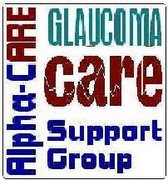Are you experiencing problems with your peripheral or side vision? Do you have to turn your head to see what's to your immediate right or left?[IMAGE]-->
It might be... Glaucoma
Glaucoma is a serious condition that involves an elevation in pressure inside the eye caused by a build-up of excess fluid. Left untreated, this pressure can impair vision by causing irreversible damage to the optic nerve and, eventually, blindness. Glaucoma results in peripheral vision loss, and is an especially dangerous eye condition because it frequently progresses without obvious symptoms. This is why it is often referred to as "the sneak thief of sight."
There is no cure for glaucoma, although it can be treated. The damage to the optic nerve from glaucoma cannot be reversed. However, lowering the pressure in the eye can prevent further damage to the optic nerve and further peripheral vision loss.
Still, early detection, appropriate and ongoing treatment, and the availability of specialized low vision and vision rehabilitation services can help people with glaucoma live productive and satisfying lives. Starting as early as age 35, a pressure check for glaucoma should be an essential part of your annual routine eye examination. A visual field test will detect peripheral vision loss.
Glaucoma at a Glance:
Affects more than 3 million people living in the United States.
Is the leading cause of blindness in African Americans, who should begin glaucoma tests as early as age 35.
Is caused by increased pressure in the eye due to a buildup of excess fluid.
Results in a loss of peripheral or side vision, which affects your ability to move about safely.
May also affect reading, as loss of visual field may result in being able to read only one word at a time.
Can cause irreversible damage to the optic nerve if left undetected and untreated.
Is particularly dangerous to your vision because there are usually no noticeable symptoms at first.
Possible Signs of Glaucoma:
There are various types of glaucoma that can occur and progress without obvious symptoms or signs. Open-angle glaucoma is the most common, and symptoms are slow to develop. As this types of glaucoma progresses, you may notice that your side, or peripheral, vision is failing, causing you to miss objects out of the side and corner of your eye.
If you are suddenly experiencing the following symptoms, you may have angle-closure glaucoma and should seek immediate treatment:
Blurred vision
Nausea
Headaches
Halos around bright lights
For More Information:
National Eye Institute. Eye Disease Simulations. See what a photo looks like to people with a variety of eye conditions. Includes information in Spanish.
http://www.nei.nih.gov/photo/sims/index.asp
Vision Simulator. An interactive tool that demonstrates progressive vision loss.
http://www.visionsimulator.com/default.asp-->
National Eye Institute. Eye health information.
National Eye Institute. Eye health information in Spanish.
The Glaucoma Foundation
Glaucoma Support Groups.
American Academy of Ophthalmology. Glaucoma information in Spanish.
Association of International Glaucoma Patient Organizations
Prevent Blindness America. The Glaucoma Learning Center.
Glaucoma Research Foundation.
American Glaucoma Society.
MedlinePlus. Glaucoma.
Peer to Peer Sharing : In the sea of knowledge, we seek to establish a connection between those seeking for information and those who have the answers sought. Together we may come to a better understanding of the "newly discovered" knowledge that makes the difference.
Sunday, July 8, 2007
Subscribe to:
Comments (Atom)
Index
- Aids (6)
- AMD (4)
- Articles (9)
- Chinese (3)
- Counselling (1)
- Forum (10)
- General (3)
- Glaucoma (35)
- Malay (1)
- Media (7)
- Medication (3)
- MOH (3)
- Myopia (2)
- Quotes (2)
- sharing session (10)
- Support Groups (11)
- Wills Glaucoma (5)
MEMBER'S LINK (not available yet)
Blog Entries
-
►
2008
(22)
- ► October 2008 (1)
- ► April 2008 (1)
- ► March 2008 (12)
- ► February 2008 (6)
- ► January 2008 (2)
-
▼
2007
(87)
- ► December 2007 (2)
- ► October 2007 (3)
- ► September 2007 (2)
- ► August 2007 (1)
- ► April 2007 (9)
- ► March 2007 (6)
- ► February 2007 (26)
- ► January 2007 (30)

About Alpha-C Support Group
OUR OBJECTIVES
- 1. We aim to discuss and formulate effective ways of coping with and managing this disease.
- 2. The group will focus on understanding the disease, adjustment needs and stress management issues.
- 3. We belief that a sound knowledge of glaucoma and its treatment is important to our personal well being.
- 4. We recognise that peer support from people in similar situations is crucial to everyone coping with GLAUCOMA.
A Forum for Glaucoma Patients by Glaucoma Patients ... and those who CARE

Alpha-CARE is Glaucoma CARE